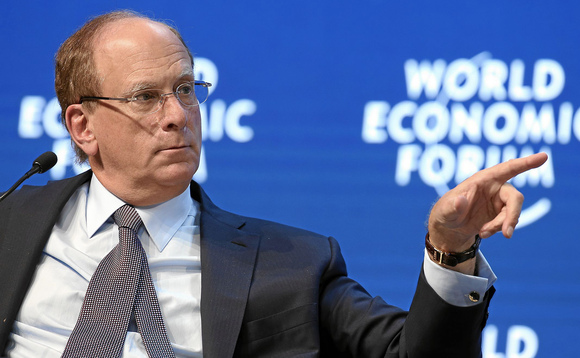The world's largest asset manager has seen its assets under management drop by 11% in what chair and CEO Larry Fink (pictured) described as an investment environment "not seen in decades" and "the worst start to the year for both stocks and bonds in half a century".
BlackRock's AUM fell to $8.5trn in the second quarter of the year due to declining asset prices and a strengthening dollar, marking the company's second consecutive quarterly drop after topping $10trn at the end of 2021, reports International Investment sister site Investment Week.
"The first half of 2022 brought an investment environment that we have not seen in decades. Investors are simultaneously navigating high inflation, rising rates and the worst start to the year for both stocks and bonds in half a century, with global equity and fixed income indexes down 20% and 10%, respectively," said Fink.
BlackRock AUM exceeds $10trn as ETFs and active strategies attract record flows
The firm still managed to attract $90bn of quarterly net inflows despite the challenging market backdrop, with positive flows across all product types and regions.
With $52bn in net inflows, the group's iShares ETF platform attracted the majority of new investor capital. Meanwhile, its cash platform saw record-breaking net inflows of $21bn as investors sought safety and to profit from rising interest rates.
BlackRock's performance fees for its advisory services saw a steep decline year over year, and retail funds saw net outflows of $10bn. ESG-based solutions, however, continued to draw in fresh investment, with assets now sitting at $473bn.
Fink said that the positive inflows in the second quarter demonstrated the firm's ability "to deliver industry-leading organic growth even in the most challenging of environments".
Broadridge: BlackRock most attractive asset management brand worldwide
"Our connectivity with clients has never been stronger. Over the last twelve months, we have delivered over $460bn of net inflows reflecting 5% organic base fee growth," he said.
The fall in AUM drove Blackrock's revenue down by 6% due to dollar appreciation on average AUM and lower performance fees. Refinitiv's poll of analysts had predicted earnings of $7.90 per share on $4.65bn in revenue, but the firm reported $4.4bn in revenue and $7.36 per share.





